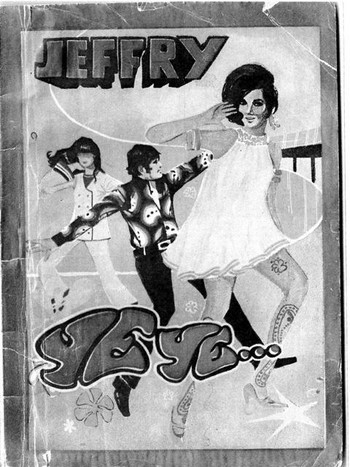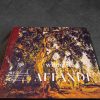Indonesian martial arts comics do not flatter the rich
<br
Gary Gartenberg
 |
Tearjerker romances so generically cosmopolitan they could be set in
any modern city in the world.The Cover of Yeye… Jeffrey, 1969. |
How do middle class and poorer Indonesians think about the rich? One answer can be found in an unlikely source: comic books. For decades these have been a popular medium of entertainment, particularly among urban working folk. They are a great reflection of popular attitudes toward the rich. In some societies, the wealthy are celebrated in comic books for their glamour, their ingenuity and their benevolence. While some Indonesian romantic comics are set in such a world too, this is not the case for the most popular genre of all: the silat, or martial art, comics.
The earliest Indonesian language comic books were created in the late Dutch colonial era, but domestic comic book culture really only came into its own after the revolution. The undisputed Godfather of Indonesian graphic storytelling is R.A. Kosasih. In the early 1950s President Sukarno himself urged Kosasih to create comic books with indigenous themes and values suitable for the new state. Most famous are his wayang comics that creatively retell episodes from the Hindu epics. These works still enjoy popularity today.
During the first two decades of the New Order regime comic book production expanded exponentially. New domestic genres emerged. These included the modern Cergam Roman











